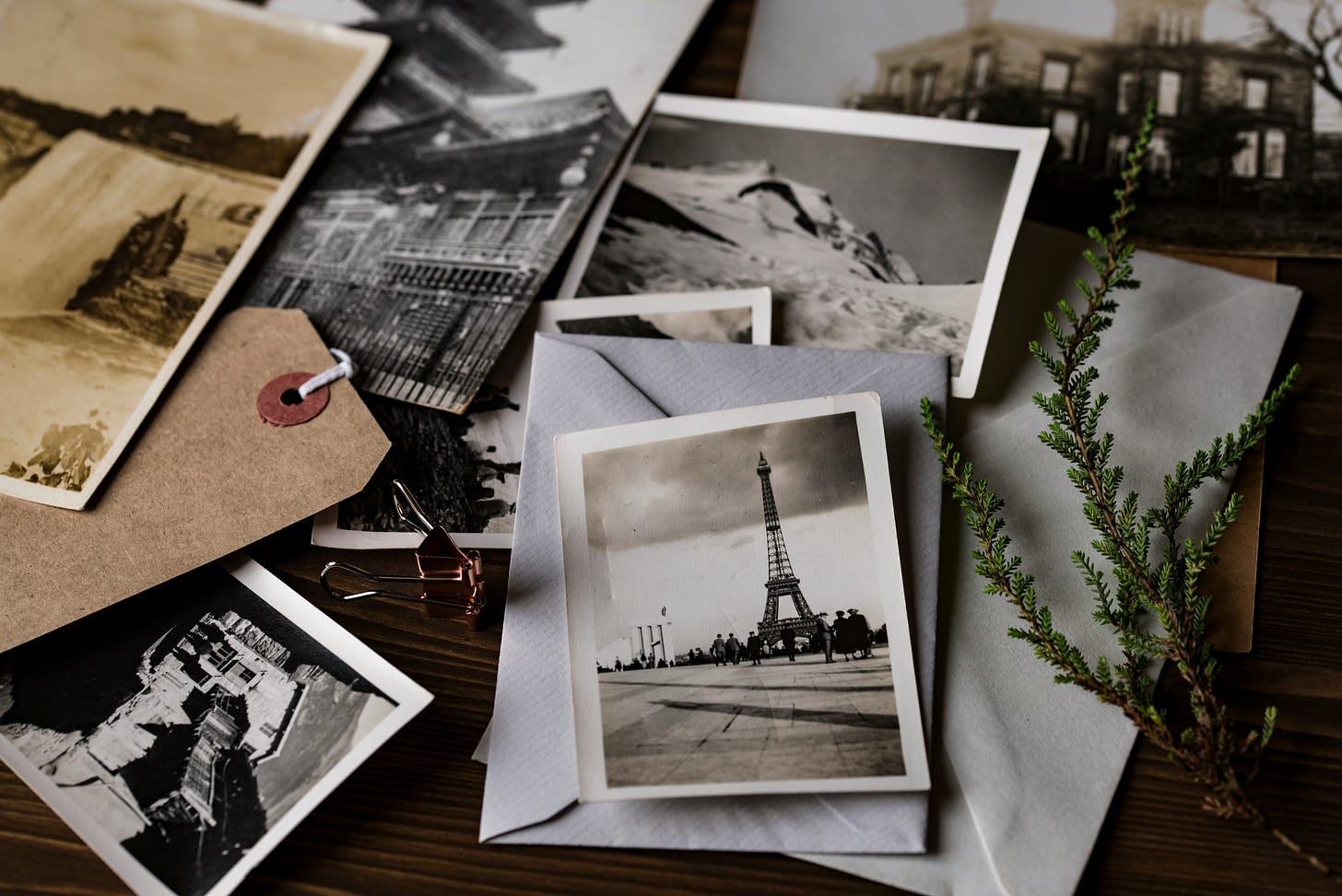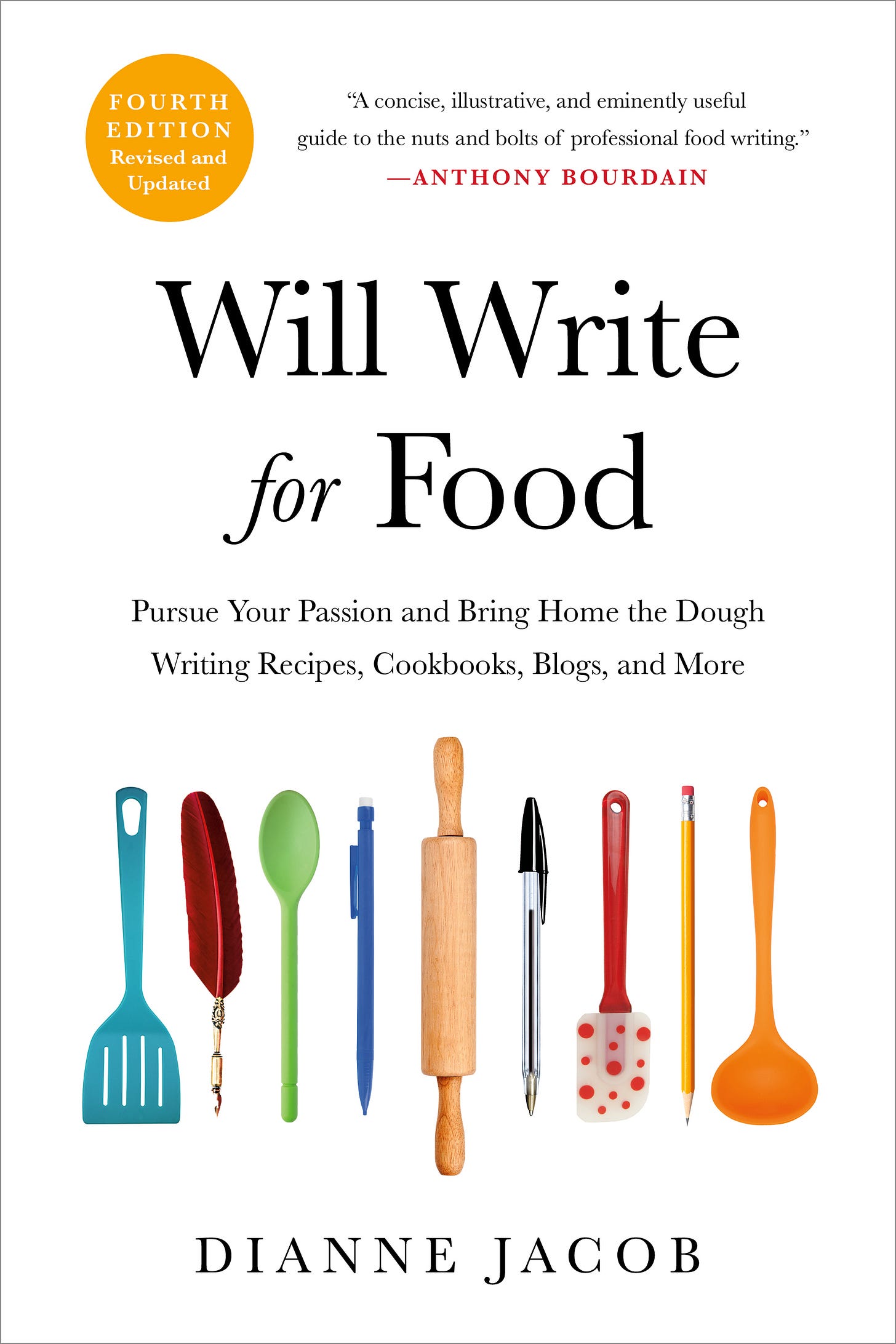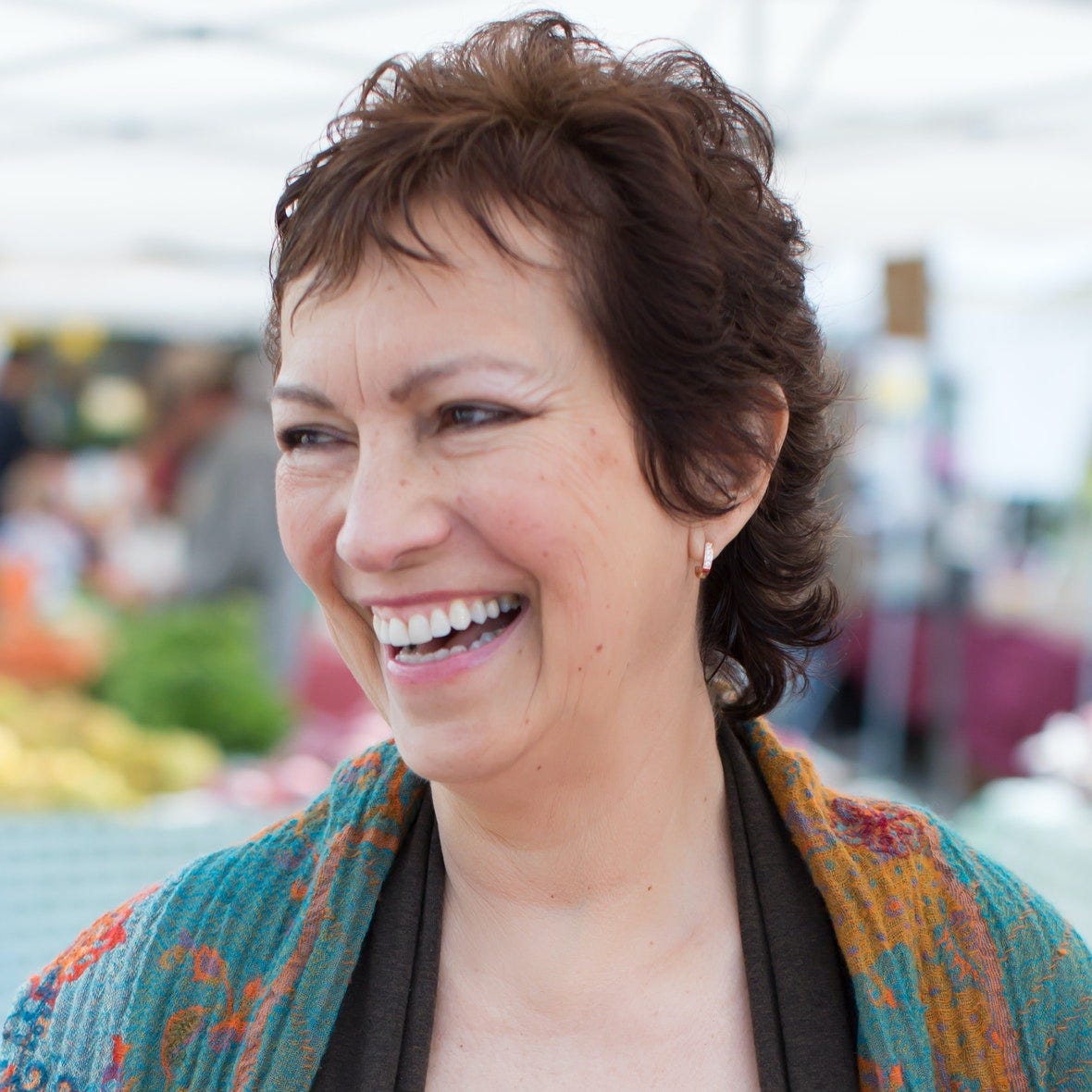A Little Rant About Using Images
Some writers need a photo or image for their post, blog or newsletter, so they...just take one?
Don’t worry. I’m not the kind of person who sides into someone’s dms to berate them for using images in their blog, newsletter and Instagram without permission.
I’m also not going to name names. Public shaming is good for shoplifting, but not in this newsletter.
But I do want to discuss the issue of theft, because many writers and influencers don’t call it that. (I wonder what they do call it?)
Yet I get it. I too have found myself at a loss for appropriate images to accompany the text I wrote. I faced this situation when Anthony Bourdain died. I needed an image of him for my blog post that shared an interview I did with him. I didn’t have a headshot I’d taken myself, of course, because we were not buds! What were available were photos taken by freelance photographers that appeared in newspapers, magazines and websites.
I know from my journalism work that the creators of photos and artwork think of their work the same way we think of our own writing and recipes: That they belong to the creators or their employers. That’s because every creative work is copyrighted. Creators don’t want others to embed their work without the creator’s permission or without a license.
For the blog post about Bourdain, CNN and the photographer gave me permission to use the photo one time. The process was a bit hairy. It took time to track down whom to ask, and I didn’t get an answer until near deadline.
To make things easier, I decided that, going forward, I would use free photos from Unsplash when I need an image. I credit the photographer and the website under the photo. I have also asked AI to create a photo when I need a specific image. I got mixed results. And of course, when I interview someone, they send me images I can publish, with their permission.
I’m appalled, however, by the number of images I see on people’s websites, newsletters, blog posts and social media that are outright stolen. Some writers use the image without any accreditation, when it’s clear that it’s not their own. Wrong! Some writers point to a website or include the photographer or publication’s name. Still wrong! If no one has given them permission to use the work, it’s a bad idea. If they had permission, they would write “used with permission” or “courtesy of…” under the photo, especially if they would like to avoid being sued.
Yes. You can be sued for copyright infringement. If the creator finds that you have used their image without their permission, you could be in legal jeopardy. It will cost much more than paying for the image in the first place. Not to mention the time lost and other headaches that can ensue.
Some creators license or sell their work (sometimes through Getty Images or Shutterstock), allowing you to pay to use their image one or more times. If you only use it once, it’s less expensive. Even when you purchase a license under Creative Commons, there are conditions. If you don’t follow them, that pesky issue of what constitutes legal use may come back to bite you.
Some good news. For historical or archival images, generally speaking, you can use them if the copyright has expired or the owner has waived it. But you must ensure the photos are in the public domain or you will need permission. If the image is older than 95 years, you can use it.
Protect Yourself from Being Sued
If you use images that are not your own, read these guides on how to avoid legal consequences:
What I find ironic is that creators would be furious if others stole their work, and rightfully so. Yet some don’t seem to have qualms about stealing other creators’ work!
Tell Me
Do you also see original images used without permission? Has it become so commonplace that you just shrug? Do you know an ethical way to use someone else’s photos or artwork legally that I have not mentioned?
Next Office Hour for Paid Subscribers
During last month’s Office Hour, 139 texts covered a range of topics, including whether to talk with an editor who’s editing your work in a way you dislike, writing a memoir by publishing it in a newsletter, and whether to include guest posts with recipes. It was fun and fast-paced!
Join me on Substack for an hour tomorrow, Wednesday, July 2 at 4 p.m. PT/ 7 p.m. ET. Think of it as a no-cost consult. Paid subscribers get an email notification that the chat has begun. Click the button in the email to join.
Not yet a paid subscriber, and want to join the chats?
What I’m Reading
On the first of every month, I curate irresistible links for you, like these:
On Instagram, Recipe-Sharing Automation Is Here to Stay. All those posts that say “Comment below and I’ll send you the recipe?” It’s a chatbot.
Your cookbooks are lying to you. Historian Rachel Rich use this click-bait title to explain “judgmental” cookbooks in a TEDx talk.
The Times Has Appointed Two Chief Restaurant Critics. Here’s How That Will Work. (Unlocked New York Times article.) These two veteran journalists will not be anonymous as critics. Ruth Reichl opines here.
The Power of a Recipe Name: Does It Really Matter? Nik Sharma details how he came up with a recipe title and what you need to think about.
It Should Not Be This Hard to Find an Agent. And yet it is, says agent Kate McKean.
Books and People that Inspired my Food Journeys. Aglaia Kremezi lists the most important cookbooks and people in her career.
15 Things a Writer Should Never Do. I like how this former Writer’s Digest editor thinks.
Vol. 5, The Kitchen Library. Amanda Lawrence really gets into testing recipes from a bunch of cookbooks.
On Easy Narratives. Alicia Kennedy defines the value of food essays. In another of her newsletters, in What Do You Want from Food Writing?, she comments on the work of Anthony Bourdain and MFK Fisher.
‘You get obsessed’: Lunch at Chapter One with arguably one of the world’s best food writers. A profile of British food writer Tim Hayward.
5 Reasons a Literary Agent Isn’t Going to Steal Your Story, Make Millions, and Cut You Out. Writers can be suspicious. If you are, read this.
7 Actually Great Cookbooks From Food Brands, From Fishwife to Tito’s Vodka. Voice and personal viewpoints triumph. (Unlocked Wall Street Journal article.)
Stop Hiding and Start Self-Promoting. Agent Kate McLean on how to promote your new book.
I Try Dozens of Cookbooks Every Season—Here Are the Ones That Truly Stood Out This Year. By Jenna Helwig, Real Simple’s food director.
Consults and Workshop
Through a partner, Delicious Experiences
One-hour consult: $250
Book a Zoom consult with me for one hour or more. If you want to write a cookbook, get published or find better freelance assignments, I can help move you forward.
About the Workshop…
I’m excited to announce that our September Sicily workshop is now sold out. Thanks everyone. I can’t wait!
What’s Happening on Instagram
Here’s my most-liked recent post, about meeting cookbook author Rick Martinez. I will interview him soon for paid subscribers. If you’re on Instagram, follow me at instagram.com/diannemjacob.
News from Clients and Students
Former student Marion Dodds launched a free Substack memoir based her forthcoming memoir.
Martha Stewart’s Summer Entertaining Guide published Yvette Marquez-Sharpnack’s tips for hosting with flavor. Yvette also just started a newsletter called From Cocina to Career. Here’s a sample: The Hardest Part About Making Money as a Food Blogger (That No One Talks About). (We worked on a cookbook proposal together.)
British publisher Green Bean Books will publish Joel Haber’s cookbook, Chulent! (I did a cookbook proposal consult with him.)
Ocado Life published an essay about instant noodles by Pat Tanumihardja. (I consulted with Pat on her first cookbook proposal.)
I like to brag about food writing accomplishments from clients and students. Send me yours at dj@diannej.com.
My Book
Here’s the latest edition of my multiple award-winning book, Will Write for Food: 2021: Pursue Your Passion and Bring Home the Dough Writing Recipes, Cookbooks, Blogs, and More.
I’m also the co-author of:
Disclosures: I am an affiliate of Food Blogger Pro, Amazon and Bookshop.org. Right now I’m mad at Bookshop.org, because they keep Will Write for Food on backorder, and therefore no one can order it.
Thanks for Reading
Like this newsletter? Please forward it to a few people or share it on social media. I would really appreciate that. New subscribers can sign up here. Thank you.
If you enjoyed this post, please click on the little ❤️ below ⬇️.
Dianne Jacob
Editor, Writer and Coach
Email: dj@diannej.com
Website: http://diannej.com
X: https://twitter.com/diannej
Facebook: https://www.facebook.com/foodwriting
Instagram: https://www.instagram.com/diannemjacob






Thank you Dianne--I've worked as a commercial food stylist for over 30 years & have access to food photos that I've been a part of. But it's important to understand who owns what--and as a stylist I don't own a photo that I've styled. The photographer (or client) owns them, so I'm careful to get permissions or credit appropriately. I often use shots I've styled at some point to illustrate recipes I share on my Substack, but I always caption with photo credits/links if I haven't shot them (I'm doing more of my own photography these days, but I'll never be as good as some of the food shooters I've been lucky to collaborate with.) In these days of AI, which has basically stolen bits and pieces of all our work, I think it's important to maintain as much integrity as we can.
Dianne, thank you for bringing this important issue to light -- it's something I've been thinking about a lot. While I take great pains to do all the photography myself for my own posts, I'm constantly seeing others use "borrowed" images without permission -- which is copyright infringement, as you point out. It is not just wrong; it is a crime. Lately I've started adding a photo credit (with my name) on my own photos, so readers understand I'm playing by the rules.